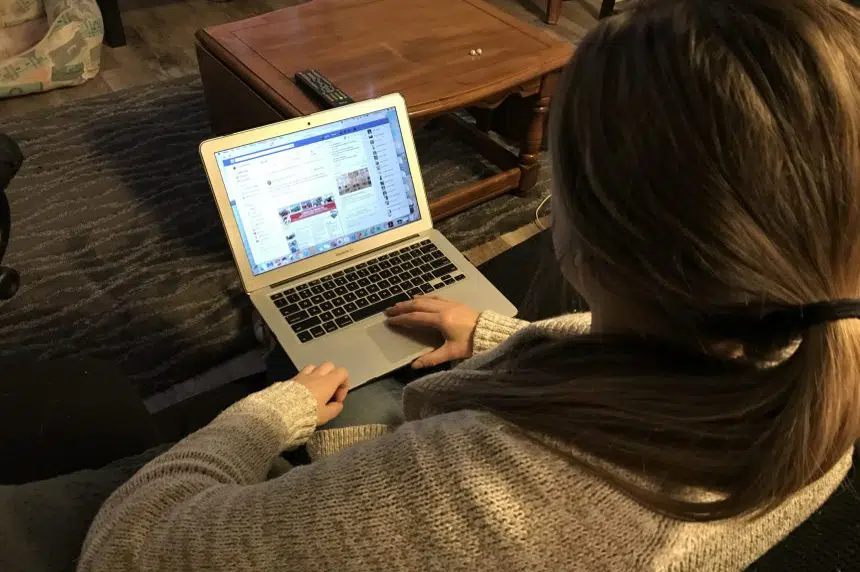Universities have had to find a whole new way of doing things in the wake of the COVID-19 pandemic, and that means whole new problems.
Some of the solutions have students worried about their privacy.
Elias Maze is one of those students. He’s worried about the software the University of Regina has chosen to oversee its tests: Proctortrack.
Since all classes are online now, the tests will be online as well. And Proctortrack will be utilized by many classes this fall and in the winter to deter cheating. Students will have to download the software and it will record them as they take the test or exam and flag any academically inappropriate behaviour.
Maze believes the program is much more invasive than it needs to be.
“That’s a huge invasion into students’ homes by the university and, personally, I think it’s inappropriate that the university believes it has the right to do this, to force this onto students,” said Maze.
Maze said he has concerns about students being required to allow themselves to be recorded in their personal space, that this third-party software will have access to too much student information, and that knowing they’re being recorded and analyzed could be bad for students’ mental health.
The 2020 winter semester ended with all classes being online and there was no proctoring software used, and the spring and summer semester went off in a similar way. Maze believes this shows this software isn’t necessary, but alternatives aren’t being given to students who have concerns.
“There’s many alternatives, I believe, and ones that are especially a lot less intrusive and invasive on students’ privacy, and where students don’t necessarily have to feel like there’s someone watching them in their home, which should be a safe space for them,” said Maze.
Maze said the university had six months to find a way to monitor exams and it’s hard to believe this was the best option.
Maze said he only found out this software was being used in the first couple of days of classes from the instructors. He said he didn’t hear anything from the university and believes the university wanted to keep it quieter.
“I believe a lot of students don’t necessarily know what Proctortrack is, what the software is, and they also don’t know the gravity and invasiveness of the program,” said Maze.
Art Exner, associate vice-president of information services at the University of Regina, said the school absolutely didn’t want to keep secret the use of the software. He said the administration spoke with the students’ union once the contract was finalized and the union held a town hall.
Exner said the university has been trying to find a way to proctor online exams for a while but had just managed to find something that would work.
“We took the time necessary to come to a good, well-reasoned decision, and the time it took to implement the system and put it in place just led us to the timing you’re seeing now,” explained Exner.
He said this decision wasn’t taken lightly, and the administration did its due diligence.
“We were satisfied with the responses to the questions the university raised, we have reviewed the material the vendor has provided to us, and in our analysis we feel that the systems and processes that the vendor has in place for dealing with these concerns and the type of data are entirely appropriate given the private nature of the data that’s involved,” said Exner.
He explained the university asked questions about what data would be collected, how long it would be stored, where it would be stored, and what it would be used for.
The Proctortrack website has a lot of information about what the software can do, including things like tracking biometrics. But Exner said it can also be tailored to what a university needs, and for the U of R, it will be a lot more passive.
“The system (records) the student taking the exam, and that recording is then available to an instructor to use, should the instructor have reason to look at the recording to further assess a student’s behaviour in an academic context,” said Exner.
Maze mentioned a student could be concerned that if they stare at the wall too long behind their computer or bend over to pick up a dropped pencil, then that could be seen as cheating.
Exner doesn’t believe there will be a rash of cheating accusations because of the software; he said the recording from Proctortrack could be used just as much to exonerate a student as convict them.
Not every class at the university will be using the software, and it won’t be used for every test within the classes that are on the list. Exner said some types of tests don’t need proctoring.
Exner couldn’t say how many classes will use it as that is still being determined.
However, for those tests where the software will have to be used, there is no alternative being offered. Asked whether, as an example, socially distanced exams in the campus gymnasiums would be an option, Exner said with all of the timing and cleaning requirements, it’s not viable.
“As it stands today there is no alternative available and we don’t have good prospects,” he said.
Exner said the university takes student privacy very seriously and did what it could in this process to make sure it’s protected.
Wednesday is the last day a student can drop a class with no record and a full refund for the tuition.











